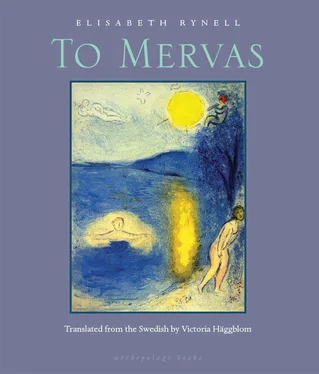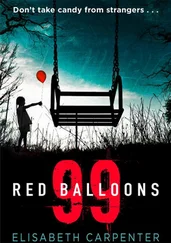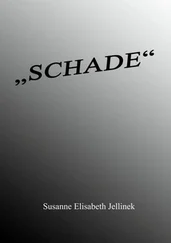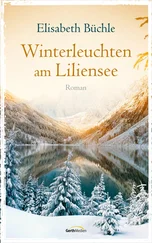She sat very still in bed and stared at the dark timber on the walls. She tried to breathe with long, slow breaths, tried to breathe herself free from the shapeless burden, the weight of being herself. It wasn’t possible to know if she, with her past and her actions, could be accepted among human beings, if she could move among them as if she were one of them.
But even on this morning, she found ways of escaping her anxiety for a little while. They were brief, these moments, small breaks from the ribbon of worry winding through her mind. During these moments, she felt present, almost happy. Then, she almost wanted to head into the dark city and, like an old-fashioned night guard, walk around and light the streetlights one after another.
Her own mother was locked up in that dark city. In there, she was faceless — large and frightening. The darkness had dissolved her features a long time ago; it was too late for Marta to assemble them into a whole again. It was as if her mother’s face had been scattered in the dark and the different pieces would never find each other again.
She now longed for that face, longed for it the way you may long for a place, a town, a room. In the short moments when she escaped her anxiety, she felt a deep longing. As a small child she’d never really felt that she’d had her mother, but her mother’s face had once been all she’d known. It had been the very firmament of life, and through it, she had come into the world. She’d lived with the scattered and blurred image of that face almost her entire life. Why she’d come to think of it so intensely now, here in Deep Tarn, she didn’t know. Something about the landscape had seized her and now it held her. The landscape was breathing, it was a pulse that she could feel, and it was heavy and monotonous and beautiful.
Perhaps the landscape was also a face; perhaps it resembled the first face she’d known. It was a gate, an entrance, to something.
Whenever Marta mumbled something about setting out for Mervas, Arnold and Lilldolly would interrupt her.
“Mervas will be there,” they’d say. “No need to be in a rush to Mervas.”
They’d show her the way there when it was time, they promised. They’d take a day trip there together in Marta’s car since Arnold and Lilldolly no longer owned one, at least not one you could drive. They were content to stay around Deep Tarn now that they were retired and didn’t have to chase after money. They had the whole world here, they said. Sun, moon, stars, and forests. Birds, fish, and all the animals. The water and the earth. They had food delivered to them once a month and got their milk, butter, and cheese from their two cows. They grew their own potatoes and got meat from the forest, from their calves and their sheep.
“But Arnold is the one who needs the meat. I’m a peaceful person, I don’t eat humans or animals,” Lilldolly declared, and emitted her little giggle.
“She’s sensitive, that one,” Arnold said. “She has looked too deep into the animals’ eyes, so to speak. Saw herself in there.”
She was an extraordinary person, Lilldolly. And she looked like a little girl, but with wrinkles. Her eyes were small and brown, with a razor-sharp gaze. Her movements were also like those of a girl, light and bouncy. She was like a squirrel. Next to her, Marta felt old and slow, even though she was many years younger.
Since Marta came to Deep Tarn, it had been windy, and the rain from the north had been cold. All the snow had melted, and there was water everywhere. It was an in-between time, a time for waiting. Everything was waiting for warmer weather to arrive and drive every shoot of grass up from the cold, wet ground, and lure the birch leaves out of their casings.
“All this water will blossom and grow green,” Lilldolly said. “When the early summer drinks its fill.”
Most of the time, Marta followed Lilldolly at her tasks. Arnold was busy with the firewood. They dug holes and spread manure on the potato field and they took care of the animals. When the sky cleared, they walked together from one farm building to the next, over wet paths in last year’s grass, zigzagging between rusty old farm equipment and broken-down cars, troughs, and graying wooden constructions. Everything was sinking into the grass, into the ground, moving down into the underground.
“Soon, the wind will be the only thing left here in Deep Tarn,” Lilldolly said. “Nothing but the wind, opening and closing doors and windows. It will be the only thing following the forest paths and visiting the houses. This place will become something else. Everything will change, will go back to what it used to be. Nature, she’s strong, my daddy used to say. She can conquer cities. This little place will be nothing but a morsel to her. She’ll swallow it whole without even bothering to chew.”
Lilldolly’s laughter rippled through the woods. It was always there, even when she was quiet. Suddenly, at a turn or behind a corner, it would appear again. Or when you stumbled a little.
Marta walked around breathing in the scents. There was the scent of water, of melted ice, and then the scent of burning wood and the odor of soil and dung and decomposing plants. The lavvu smelled of sharp wood smoke; the house had a sweet cottage aroma. Around some of the huts and barns there was a faint aroma of tar in the air and arching over all the other scents was that of forest, of conifers and pine needles, of turpentine and wind filtered through branches. Marta let the scents fill her like wine, like a young and vibrant wine. They made everything around her, the light, the deep yet muted colors, become visible as if they’d been created and shaped by them.
Sometimes when she felt tired, she went to the lavvu by herself to rest or to write in her journal. The lavvu wasn’t a simple traditional one, which was what she’d imagined the first night she heard about it, but a wooden structure without windows or chimney that looked like a little cabin or a fort with a cone-shaped roof. She liked to sit in its dim half-light, smelling the wood smoke and hearing the sounds outside as close as if she were out there. She felt protected inside there, childishly safe. She didn’t feel the same anxiety she’d had on the first morning; at any rate it was weaker, sort of diluted. All the roads and paths she walked down with Lilldolly were now being sewn into her life and although these paths might have been made with fast, simple stitches, they attached her to something, they kept her in the world. The fact that Deep Tarn was a place on the edge of things, and that Arnold and Lilldolly were outsiders, seemed significant somehow.
One morning, Marta went with Lilldolly to the tarn the farm had been named after. It looked like a big eye and was situated in the woods not more than a hundred yards from the house. They followed an often-used path along the edge of the water and came to a small cabin at the farthest end of the tarn. Lilldolly explained that she lived there during the summer. Once the goats and the cows had been let out to roam the forest for the summer, she’d stay there, that’s what she’d always done. A short distance from the cabin was the summer barn, a shelter with a roof and three rough walls. Lilldolly would milk the animals there, where they could also escape the gnats. Gnats don’t like roofs, Lilldolly said. Under a roof, their bites are useless.
Together, Marta and Lilldolly started organizing the cabin for the summer. They swept and scoured the floors, aired out rugs and mattresses, cleaned the chimney, and cleared out the woodstove. They placed bunches of budding blueberry branches in glass jars around the hut. Marta felt light and happy, as if she were a child again, puttering about in her playhouse, making it nice. During some summer vacations, Marta and her sister had stayed on farms and at one of them there’d been a playhouse where they could spend as much time as they wanted. It was as if they’d been given their own kingdom to rule, a kingdom where they were the king and queen and their rules were the only ones that applied.
Читать дальше












